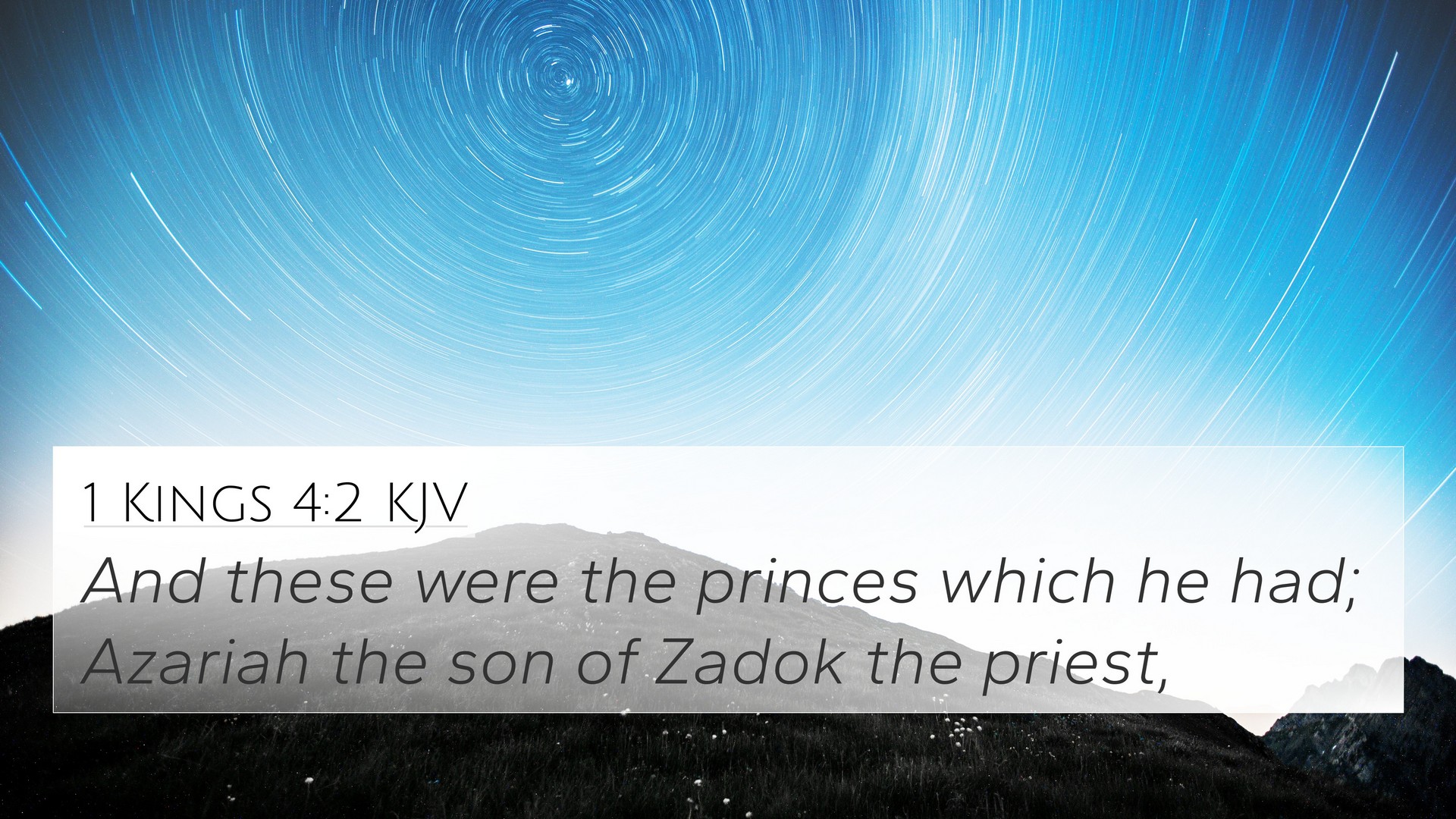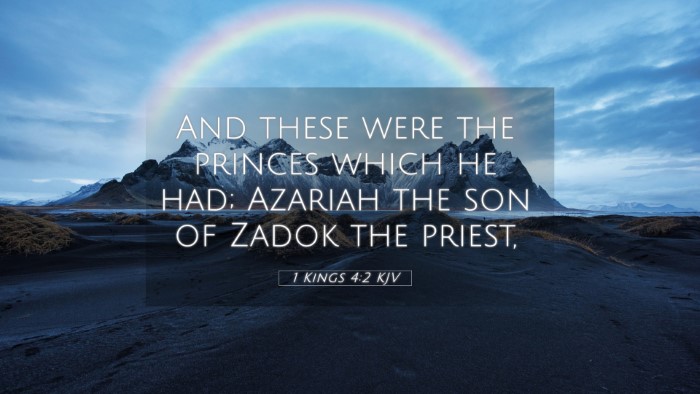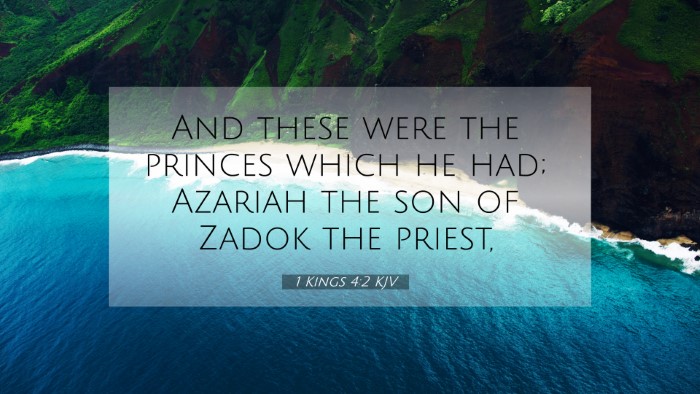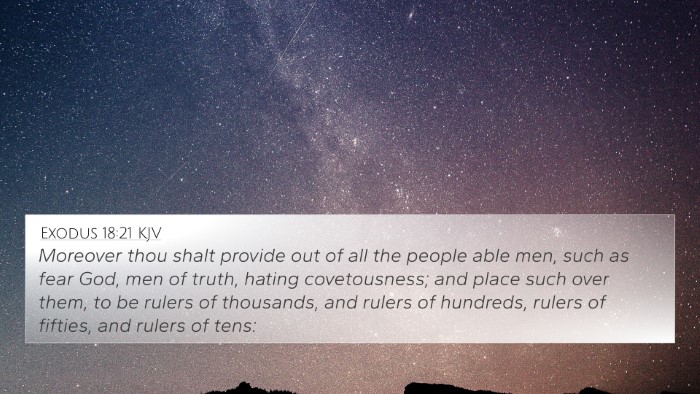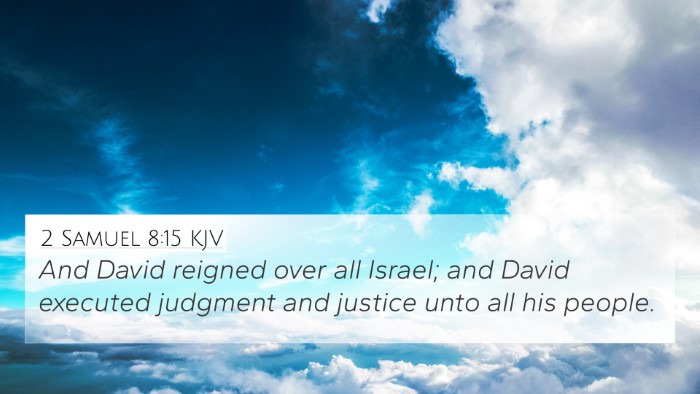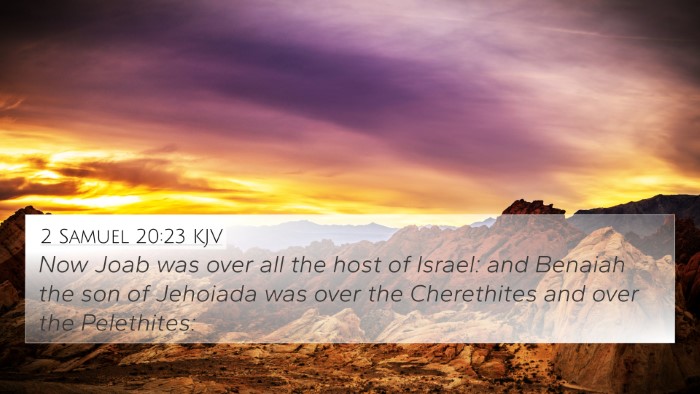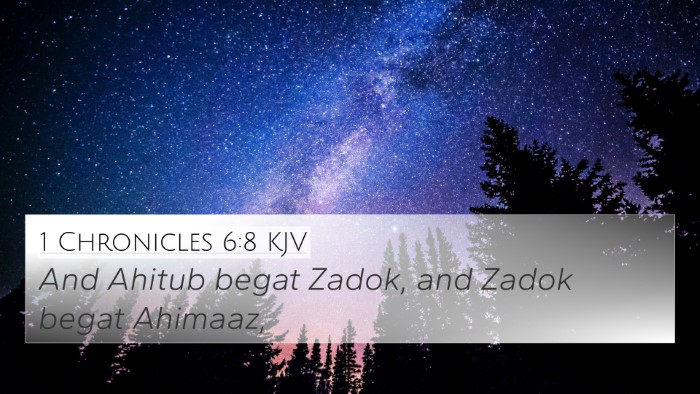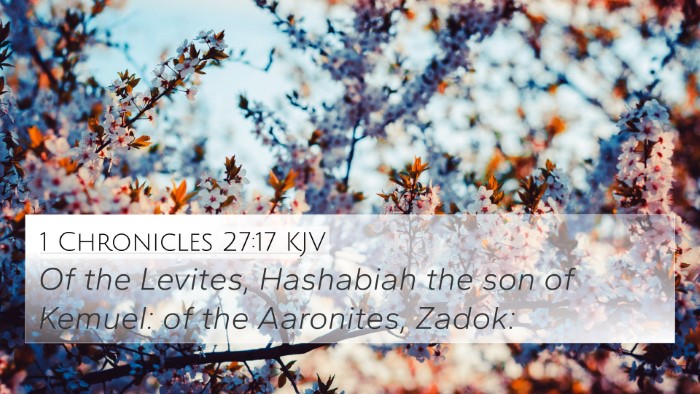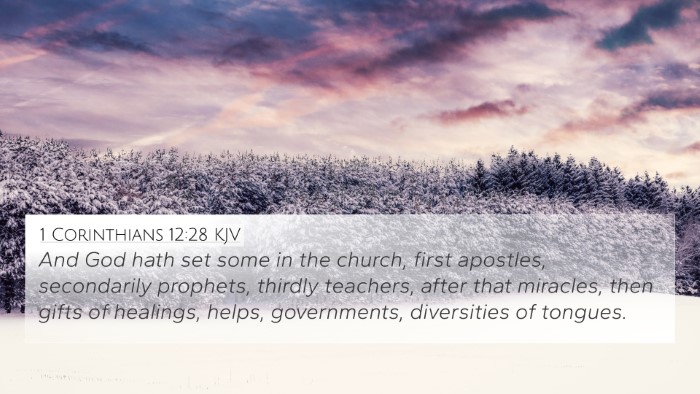Understanding 1 Kings 4:2
Verse: 1 Kings 4:2 - "And these were the princes which he had; Azariah the son of Zadok the priest,"
Summary of Meaning
This verse introduces Azariah, the son of Zadok, who is identified as one of the important princes or officials under King Solomon. This context is significant, as Solomon's reign is characterized by wisdom, prosperity, and administrative organization.
Commentary Insights
Matthew Henry: Henry notes the importance of establishing a stable government and administration during Solomon's reign. By mentioning Azariah as a prince, it highlights the role of the priesthood within Israel's governance. This connection shows how religious leadership was intertwined with political authority in ancient Israel, ensuring that the nation's relationship with God was a primary concern of its leaders.
Albert Barnes: Barnes adds that Azariah, as the son of Zadok, comes from a lineage of significant importance. The Zadokite priests were known for their faithfulness and service to God, emphasizing the continuity of priestly duties alongside the authority of kings. This underscores the idea that effective governance was not solely political but also deeply spiritual, necessitating wise and righteous leaders.
Adam Clarke: Clarke elaborates on the role of princes and the organization of King Solomon’s court. He points out that such leaders were responsible for various administrative tasks, illustrating Solomon’s strategic planning to ensure order and justice. His reference to Azariah as a key figure exemplifies the integration of religious duties with governmental oversight, signifying the importance of having spiritually minded leaders.
Cross-References and Thematic Connections
1 Kings 4:2 connects with various other Bible passages, emphasizing themes of leadership, God's covenant with Israel, and the intertwining of spiritual and civic duties:
- Numbers 3:32: Discusses the roles of the Levites and priests, similar to Azariah's position.
- 2 Samuel 8:17: Mentions Abiathar, the high priest, showing the establishment of priesthood roles during David's reign.
- 1 Chronicles 29:22: Highlights the assembly of people under Solomon, signifying unity in leadership.
- 1 Chronicles 24:3: Outlines the divisions of the priests, reflecting the organization parallel in Solomon's administration.
- Proverbs 16:10-11: Speaks of the importance of just weights and measures, relating to the responsibilities of princes.
- Exodus 18:21: Moses' advice to appoint leaders over the people correlates with Solomon's structure in governance.
- Malachi 2:7: Describes the role of the priest to preserve knowledge and instruct others, akin to Azariah's duties.
- Matthew 23:2-3: Jesus discusses authority and accountability, linking to the duties of leaders in Scripture.
- Hebrews 7:11: Explores the priesthood's significance, extending insights about Azariah's lineage.
- Isaiah 1:26: The need for just leaders is advocated, resonating with Solomon's mission.
Thematic Connections in Scripture
This verse illustrates several overarching themes in the Bible, such as:
- The Divine Order of Governance: How leaders are appointed and their responsibilities.
- Interrelation of Church and State: Religious authority influencing political circumstances.
- Faithfulness in Leadership: Importance of righteous leaders highlighted throughout the Scriptures.
- The Role of the Priesthood: Their influence on the nation's spirituality and morality.
Using Cross-References in Study
Understanding 1 Kings 4:2 is enriched through the use of cross-referencing. Here are some effective tools and methods:
- Utilizing a Bible concordance to find related verses.
- Engaging in cross-reference Bible studies to delve deeper into themes.
- Employing a Bible cross-reference guide to navigate connections between verses.
- Practicing identifying connections between Old and New Testament scriptures.
- Leveraging Bible reference resources for comprehensive studies.
Similarities Between Related Verses
This verse can be examined alongside 2 Samuel 8:17, revealing the continuity of priestly roles from David to Solomon's reign. Both verses emphasize the importance of the priests in leadership, setting a precedent for future governance.
Conclusion
1 Kings 4:2 serves as a significant verse illustrating the interconnectedness of governance, spirituality, and leadership in ancient Israel. By mapping its connections with other scriptures, believers gain a deeper understanding of God’s design for authority and the essential role of religious leaders, as exemplified by Azariah, the priest.
